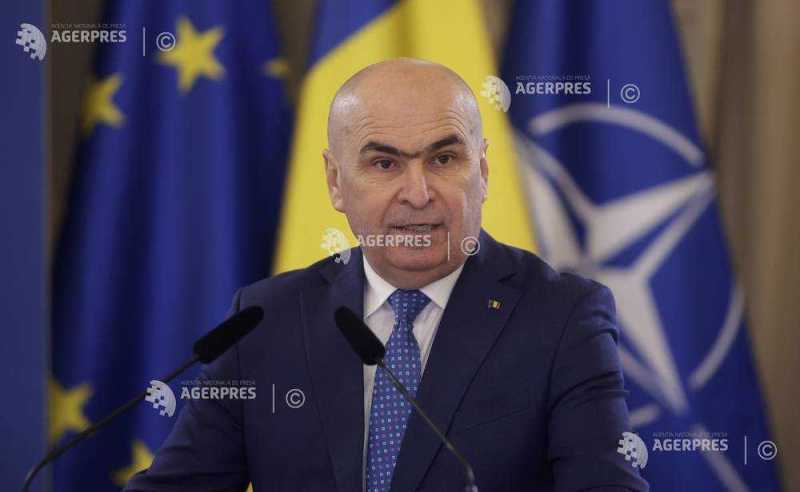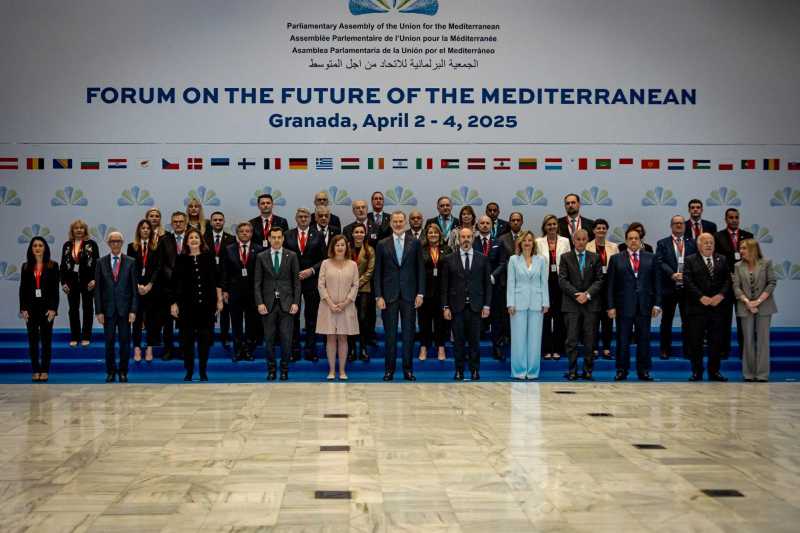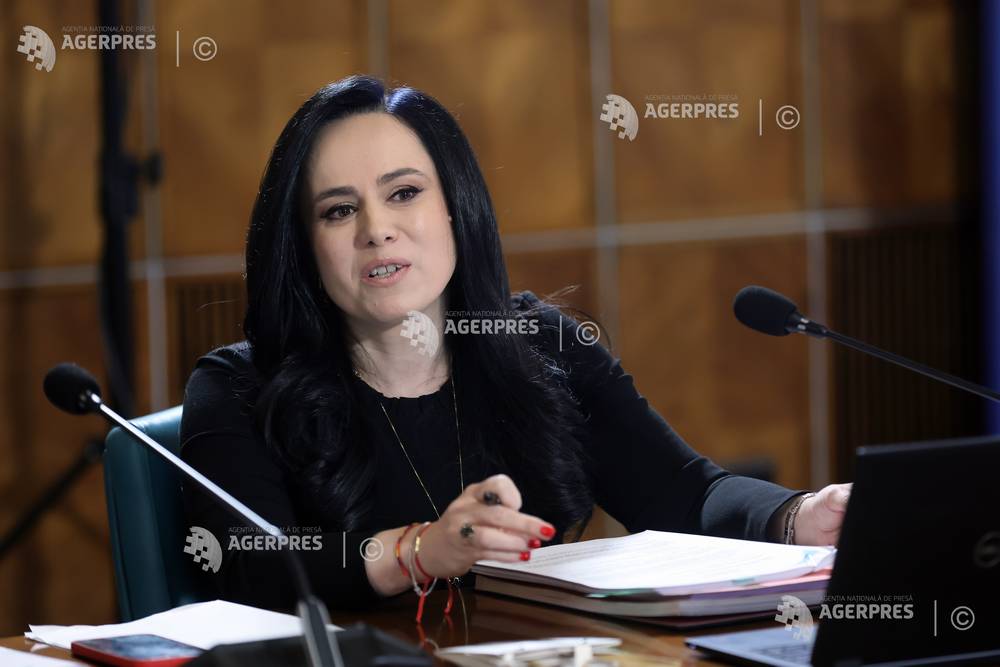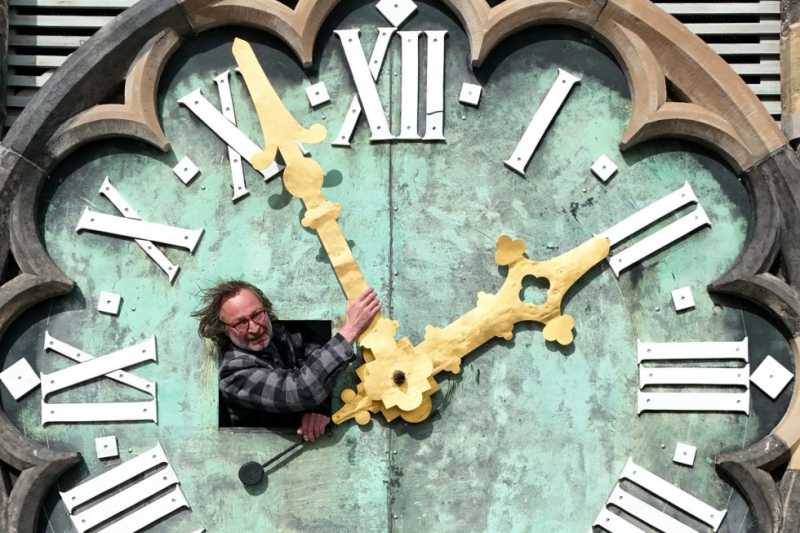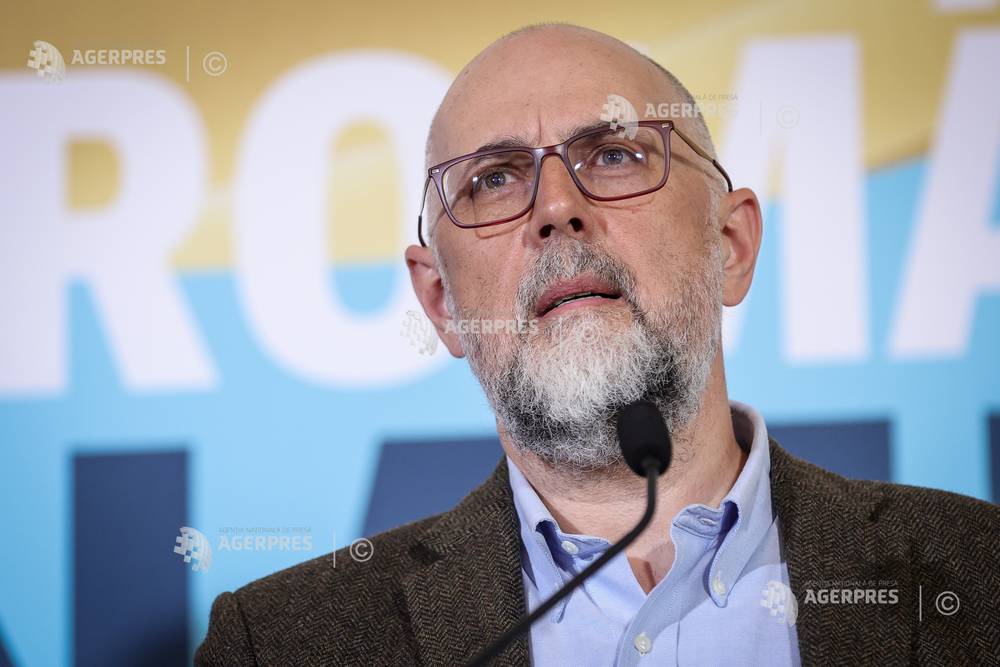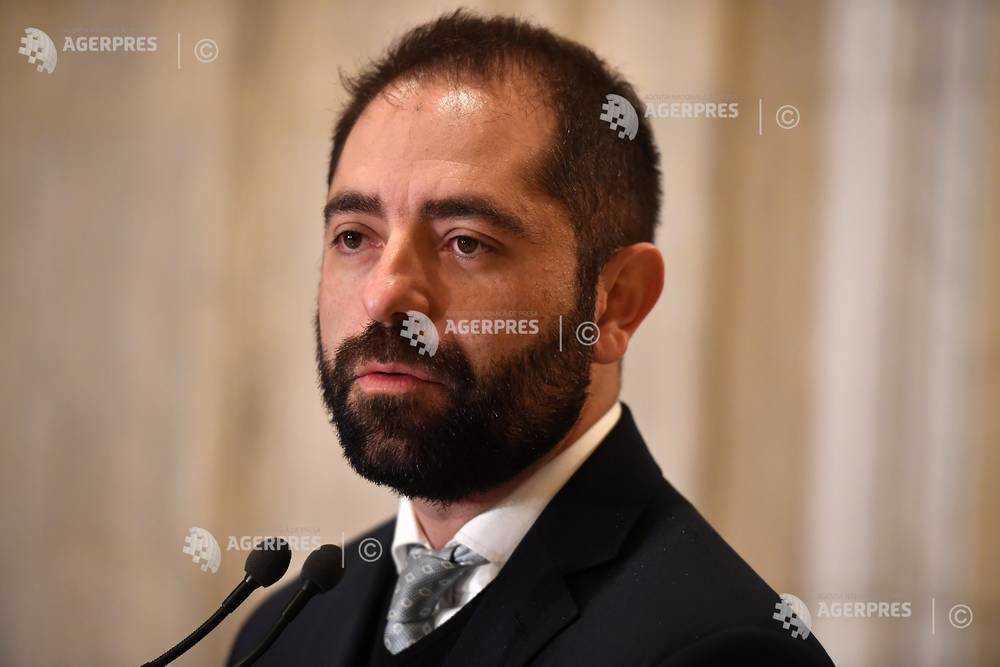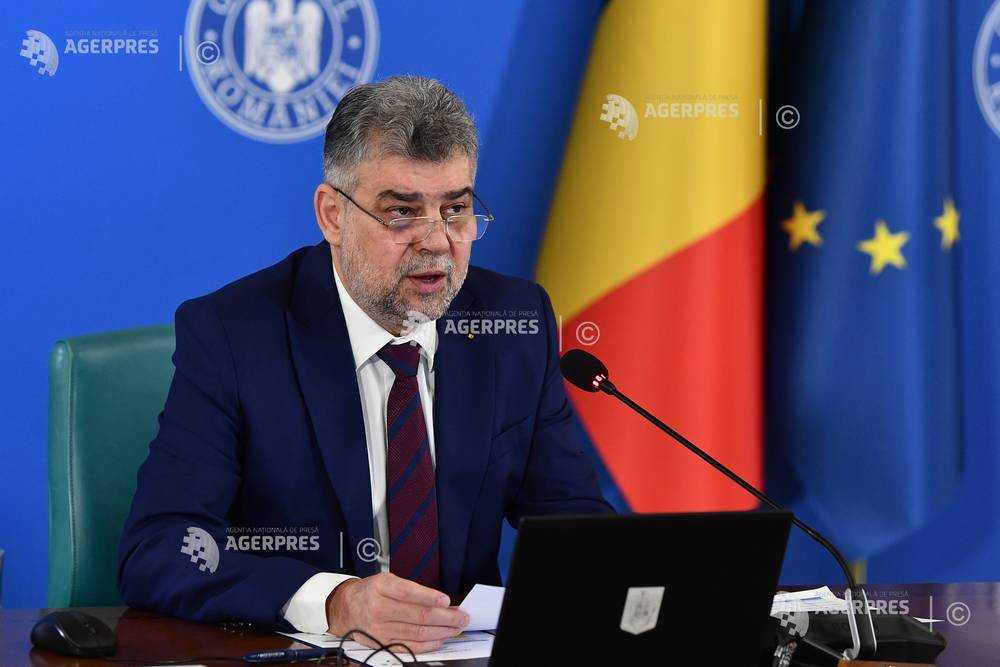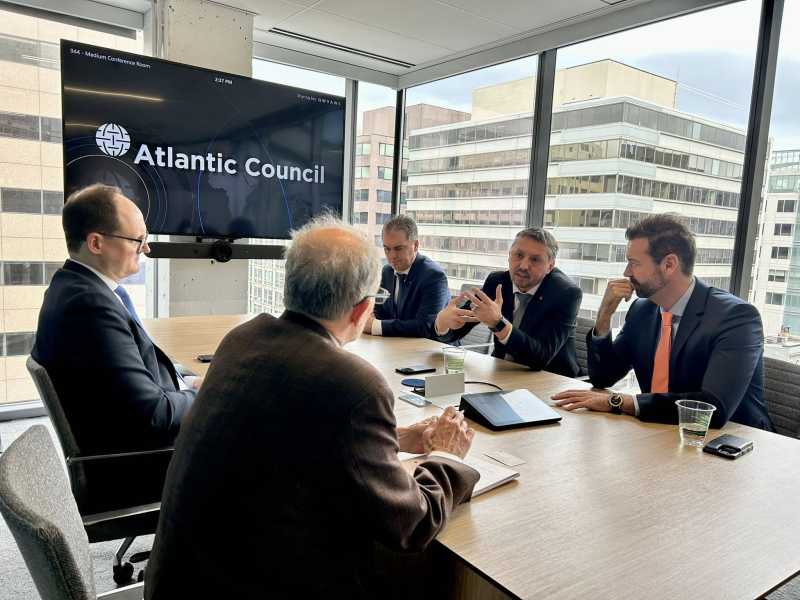Young and restless: Where do young people want to live and work in the EU? (enr)

Brussels, Jan 31 /Agerpres/ - Europe's youth is increasingly footloose. People aged 15 to 29 are among the most mobile - studying or working in a different country from where they were born. But it is not a time for carefree partying for Europe's young.
What drives young people to pack up and leave their country of birth? According to Eurostat figures from 2023, 14.2 percent of young people aged 15 to 29 were born outside their current country of residence and 11.9 percent were living in another country than the one where they held citizenship.
The picture is pretty similar across the board - economic difficulties and a perceived lack of opportunities are among the key reasons why young people move to a different country. This goes for EU citizens and non-EU citizens alike. But for the latter, a move also brings along risks.
Brain Drain
Portuguese sociologist Rui Pena Pires for example said that youth migration and brain drain in his country are caused by low wages and the housing crisis.
In a recent interview with news agency Lusa, the scientific director of the Emigration Observatory, said that 'the difference in salaries and professional prospects' are the main driving force behind Portuguese emigration, especially among younger people. According to Portuguese data, around 30 percent of people between 15 and 39 emigrate.
Similarly in Slovenia, young people point to housing shortages, insecure economic circumstances, low wages and the lack of career opportunities as their main sources of discontent - though they often praise the quality of life in their home country. Total numbers are small, but still significant for a country with only 2,1 million inhabitants: In 2023 around 1,500 Slovenes aged 15 to 29 left the country.
In neighbouring Italy, youngsters also consider a future abroad. More than 300,000 Italians who settled abroad in the last ten years were between 25 and 34 years old, according to the National Institute of Statistics (Istat).
To justify their choice, they cite low salaries, the mismatch between the job offers and their qualifications, and the weakness of public services. Among these young people, the proportion of graduates continues to increase. 'It is not normal that our country does not ask itself why and does not remedy this haemorrhage,' lamented Renato Brunetta, president of the National Council of Economy and Labour (CNEL), during the presentation of a report on the subject.
Based on a sample of ten countries - mainly European - the report estimated that for every young foreigner who comes to settle in Italy, nearly nine young Italians leave. The youth unemployment rate stands at 19.2 percent as of November 2024, higher than the EU average for under 25s (15.3 percent).
In Bulgaria between 8 and 10 percent of high school leavers study abroad, with most of them going to EU countries such as the Netherlands, Belgium, Italy and Spain - however the country also boasts a roughly 10-per-cent share of foreign students, attracted by relatively low tuition fees and living costs.
Faster economic growth - at least compared to the EU average - can help stem the tide. While Croatia experienced a large population outflow after joining the EU in 2013, the decrease has slowed over the last years. Still, among the 373,935 people who emigrated from Croatia from 2014 to 2023 according to the country's Central Bureau of Statistics, the largest group were aged between 20 and 39.
There is a consensus among economists that emigration is closely related to the level of development of the country. Because it is quite natural, especially for young people, to try to realise their dreams and ambitions by going to more developed countries.
According to Croatian economist Velimir Šonje, this is best shown by two examples, Ireland and Poland, which were once emigrant countries, but after successful economic growth have become countries where more people come than leave. According to some analysts, Šonje added, the trend begins to reverse when a country reaches about 80 per cent of the EU average economic development. Croatia has already come close to that range with somewhere around 78 percent of the European average.
EU candidate country North Macedonia is losing the fight against the brain drain. Eurostat data suggests that at least 200,000 people, or close to 10 percent of the total population of North Macedonia, have emigrated to other countries in Europe over the last two decades.
According to the International Monetary Fund (IMF), destination countries for citizens of North Macedonia have primarily been western EU states Germany, Italy and Austria as well as non-EU member Switzerland. But also EU-member countries closer to North Macedonia such as Slovenia, Croatia, and Bulgaria have seen an increase in immigration from North Macedonia in recent years.
Emigration is causing an increasing shortage of highly skilled people in sectors such as academia and research. According to the World Economic Forum (WEF), North Macedonia has one of the highest levels of brain drain in the world. Young people are disappointed by the level of corruption in the country as well as the lack of opportunities and perspectives.
In Bosnia and Herzegovina 2,777 people officially deregistered their residence in 2023 to emigrate abroad, with Germany, Austria, Slovenia, and Croatia being the most common destinations according to official data. Although these figures do not reflect the total number of emigrants, they confirm a trend that concerns politicians and experts alike.
Additionally, a survey by the United Nations Population Fund (UNFPA) showed that nearly a quarter of young people in BiH are seriously considering permanently leaving the country, while 23 percent are thinking about temporary emigration. The main reasons are a lack of employment opportunities, low wages, uncertainty about the future, corruption, and political instability.
Experts warn that urgent measures are needed to create better conditions for young people to stay, as this trend affects the country's demographics and economic potential. One key initiative in this regard is the Youth Guarantee, a European Union program that provides young people under 30 with opportunities for employment, education, internships, or traineeships within four months of completing their education or losing their job.
However, experts emphasise that, in addition to such initiatives, broader reforms in education, the economy, and the labour market are necessary to establish long-term sustainable conditions for young people to stay and to prevent further population decline.
The Erasmus years
The EU itself has been a major driver in fostering mobility among young people. Most well known is Erasmus+, which was established in 1987 as an exchange programme for students in higher education. Since then, around 16 million people have participated, according to the programme's statistics. The programme has also widened its scope since its inception, also including among others trainees, youth workers or sports coaches. For the 2021-2027 period some 26.2 billion Euro were allocated to Erasmus+.
Not always welcome
Yet, a move to the EU for non-EU citizens does not always help to improve their lot. At 47,2 percent, young non-EU citizens in 2023 were twice as likely to risk poverty or social exclusion than youngsters living in their country of citizenship (21.8 percent), Eurostat data showed. Additionally their unemployment rate was at 15,1 percent across the 27-member states, compared with 10.9 percent for young EU citizens.
With migration remaining a hot-button topic across the bloc, young migrants - even well educated ones - are often confronted with racism and rejection, exacerbating those risks. France's Prime Minister François Bayrou for example was criticised by even his allies earlier this week after saying there was a growing feeling that immigrants were 'flooding' France.
'Foreign contributions are a positive for a people, so long as they remain proportionate,' Bayrou told the LCI news channel. 'But as soon as you get the feeling of flooding, of no longer recognising your own country, its lifestyle and its culture, rejection appears.'
In France, a strong factor in non-EU youth migration are incomers from Africa, many of whom are trying to find ways out of endemic unemployment. Tunisia, under French rule until the 1950s, is a case in point: A study published by the Arab Barometer in August found that seven out of 10 Tunisians aged between 18 and 29 wished to emigrate. Official figures show 41 percent of young Tunisians are unemployed - even as 23 percent of them hold university degrees.
The content of this article is based on reporting by AFP, BTA, FENA, HINA, Lusa, MIA, STA as part of the European Newsroom (enr) project. AGERPRES (editor: Mariana Ionescu)
The content of the www.agerpres.ro website has the exclusive purpose of public informing.
All the information published on this website by AGERPRES is protected by relevant legal dispositions.
It is forbidden to copy, reproduce, recompile, decompile, distribute, publish, display, modify, create derived components or products or full services, as well as any exploitation of the site's content.
Details in the section Terms of Use. If you are interested in picking up AGERPRES news items, please contact the Marketing Department – [email protected].
The use of the Comments section entails your obligation to respect the AGERPRES terms and conditions in regards to the publishing of comments on the www.agerpres.ro.
Other news in category
Interim President Bolojan: Romania remains firmly committed to values and principles that underpin NATO
Interim President Ilie Bolojan on Friday sent a message on 76 years since the creation of the North Atlantic Treaty Organization (NATO), saying that Romania stays firmly committed to the values and principles that underpin the Alliance. 'Today, we mark 76 years since the founding of NATO, the strongest political-military alliance in history. Romania remain
Senate's Abrudean at Forum on Future of Mediterranean: Investing in people is for peace, sustainability, development
Bucharest, April 4 /Agerpres/ - Investing in people, through accessible, inclusive and quality education, is a long-term investment in peace, sustainability and development, highlighted the interim president of the Senate, Mircea Abrudean, at the Forum on the Future of the Mediterranean, in Granada. 'In the face of multiple crises, we must continue to join
Romanian Academy celebrates 159 years of existence
Bucharest, April 4 /Agerpres/ - The Romanian Academy celebrated 159 years since its founding with a festive session on Friday. During the event, the president of the Academy, Ioan-Aurel Pop, emphasised that the institution's projects are integral to the major endeavors of Romania's national culture. He remarked that only the ignorant or malicious indiv
Cheile Bicazului-Hasmas National Park cameras provide valuable information on wildlife
Since 2022, twenty cameras have been installed in the Cheile Bicazului-Hasmas National Park to monitor wildlife as part of a European-funded project, park director Hegyi Barna told AGERPRES. Half of these cameras are capable of sending images via email once captured. These cameras provide valuable information about animal behaviour, the number of animals in th
Labour minister Bucura-Oprescu: Joining the OECD represents a great opportunity for Romania to speed up reforms
Joining the Organization for Economic Cooperation and Development (OECD) represents an opportunity for Romania to speed up the implementation of ongoing reforms, but also a commitment to modernisation, alignment with international standards, says the minister of labour, family, youth and social solidarity, Simona Bucura Oprescu. According to a post on Facebook
PM Ciolacu: Romania is going to receive a new model of the PATRIOT system from the U.S.
Romania is going to receive a new model of the PATRIOT system from the United States, Prime Minister Marcel Ciolacu said on Friday, pointing out that the purchase contract has been signed and the payment has already been made. The announcement was made at the end of a visit to the construction site of the Large Burns Centre at the 'Pius Branzeu' County
Time to say goodbye: Will the EU ever abandon Daylight Saving Time? (enr)
Brussels, April 4 /Agerpres/ - A move to end the twice-yearly clock change in the EU has been on the back burner for years. The Polish Presidency of the Council of the European Union has been pushing against the Brussels inertia to get that ball rolling again. Help might come from an unexpected corner: Trump and Musk. Like clockwork, every year in late March t
Romania's membership of the North Atlantic Alliance, strongest guarantee of security (PM Ciolacu)
Romania's membership of the North Atlantic Alliance is the strongest guarantee of security, Prime Minister Marcel Ciolacu said on Friday in a message marking NATO Day and the 21st anniversary of Romania's accession to the organization. 'The most powerful political-military alliance in the world today celebrates 76 years since the signing of its fou
UDMR's Kelemen Hunor on tariffs imposed by the USA: We need to stay calm, we need to discuss, negotiate
The European Union and Romania must deal with the situation created by the introduction of the new tariffs by the USA calmly, we need to discuss and negotiate, believes the president of the UDMR (Democratic Union of Hungarians of Romania), Kelemen Hunor. Asked on Europa FM radio station how should Romania manage from a political and diplomatic point of view &#
Civic organisations ask authorities, parliamentarians and presidential candidates firm pro-European stance
The civic organisations that launched 'Manifest pentru Europa' ('Manifesto for Europe') in March have sent a document to authorities, parliamentarians and presidential candidates, requesting a firm pro-European stance and the commitment to concrete measures to protect Romania's Euro-Atlantic future. 'The 29 civic organisations that laun
Gendarmerie Day/IntMin Predoiu: I am proud of the way you managed tense moments
Minister of interior Catalin Predoiu on Thursday voiced his appreciation for the activity of the Gendarmerie and the way in which these institutions know hot to manage tense moments that require the involvement of the law enforcement. He participated in the 175th anniversary since the establishment of the Romanian Gendarmerie. 'I was proud t
Burnete (Concordia): U.S. tarrifs impact to be seen in Romania in automotive industry, furniture or steel products
Romania's direct exports to the United States represent approximately 2% of the country's total exports, however, the indirect impact of the new tariffs imposed by the U.S. may be felt in sectors such as the automotive industry, furniture and wood products, steel and iron goods, rubber and rubber products, industrial equipment, and the food industry, which are part o
PM Ciolacu: We will protect Romanian companies from effects of trade war between America and Europe
Prime Minister Marcel Ciolacu on Thursday announced support measures for all industries affected by 'the effects of the new trade war of tariffs between America and Europe,' mentioning that there is trust in Romania from investors. 'We will protect Romanian companies with all available resources from the effects of the new trade war of customs tari
Education Minister David, discussions on research-innovation, transatlantic relations, competitiveness, on visit to the United States
Minister of Education,Daniel David, on a visit to the United States, had meetings with representatives of several organizations and institutions, including the International Monetary Fund, the Congressional Office for International Leadership (COIL), the Atlantic Council, as well as with representatives of the Romanian diaspora. According to the ministry's
PresidentialElection2025/Election campaign to start with 11 candidates running for president
The election campaign for the presidential election starts on Friday at 00:00 and ends May 3 at 7:00. For 30 days, the eleven candidates registered in the race for the Cotroceni Presidential Palace will try to convince the voters to vote for them on May 4. During the election campaign, only the following types of propaganda materials are allowed


